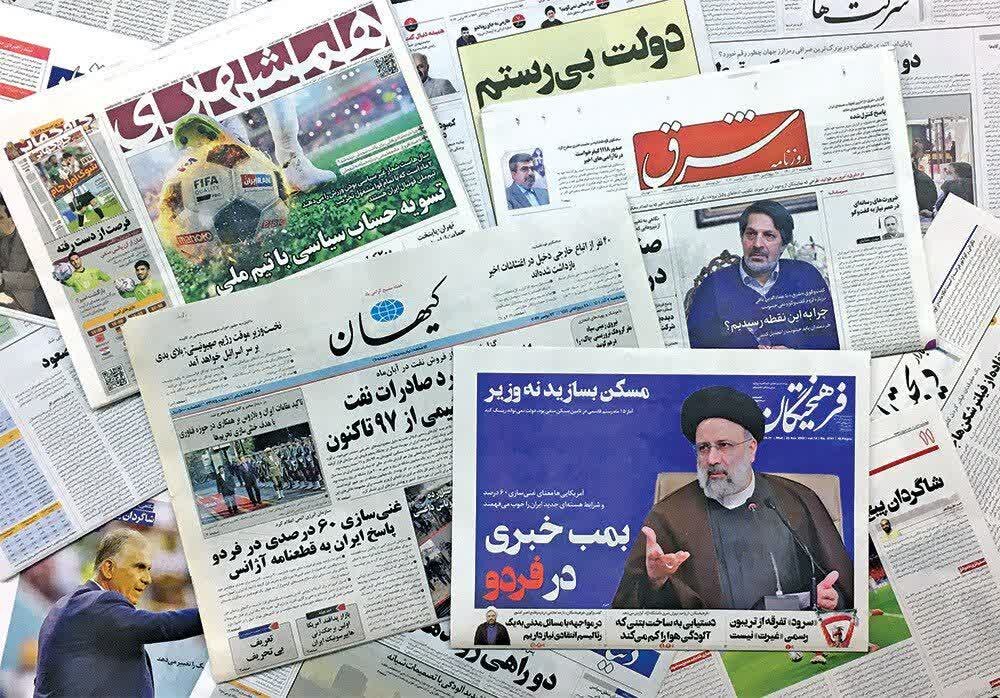Munich carnival!

This year, the German government turned the Munich Security Conference into a propaganda-political carnival, Etela’at writes.
At the Munich carnival, three Iranian oppositionists were invited.
The German government publicly put anti-Iran policies on its agenda under the pretext of protecting human rights. While Berlin still hasn't given a clear answer to selling chemical weapons to Saddam Hussein during Iraq’s war against Iran in the 1980s.
The German government has so far refrained from issuing even a diplomatic statement condemning the crimes of the United States in Afghanistan, therefore it is a partner in the crimes of the United States in Afghanistan.
Now the U.S., along with Germany, France, and England, has created the Ukrainian swamp.
Now the political and reasonable relations between Germany and Iran have become tense, and the Munich carnival has intensified the confusion with the hullabaloo of defending "human rights".
In Germany, isn't there a wise and knowledgeable politician on Iran-Germany relations to raise his voice of protest, even to protect the country's national interests!?
E'temad: Diplomatic lesson from India to Iran
Etemad writes: The basis of relations between the United States and India in the new era is based on two strategies: Turning towards Asia and balancing from a distance, alliance against China, and continuation of strategic relations with Russia.
The Ukraine crisis has highlighted the two-sided strategy and made the "Chosen Partners" more prominent to describe their relationship.
Although India has so far been neutral towards the Ukraine crisis, in practice it has supported Russia and opposed the anti-Russian measures or at least it has not been with the anti-Russia coalition.
India's balanced relations with the U.S. and Russia have many lessons for Iran:
- Iran can raise some of its demands from India through Russia.
- The Islamic Republic can join India and Russia (as well as China) to de-dollarize its commercial transactions and reduce its reliance on the West by establishing regional commercial and economic institutions.
Arman-e- Melli: New agreement instead of JCPOA
Arman-e- Melli writes: It seems that the JCPOA is nearing its end and the West is talking about a “political and diplomatic solution”. Now, what is the diplomatic solution and what changes it will have compared to the past, they should be discussed in the negotiations.
Considering that in June, 8 years of the JCPOA will end, the agreement should be considered finished and another deal should be made.
But the JCPOA is not the only challenge between Iran, Europe, the U.S., and the Arab countries of the Middle East. The war in Ukraine and the accusation of sending Iranian weapons and drones to Russia, the recent unrest in Iran, which are linked to human rights issues, are among the other topics that the West has challenges with Iran.
Therefore, it seems that the opportunity that Iran had to reach a mere nuclear agreement has been lost, and if there is a new agreement, it will not be only nuclear; other issues and topics will also be discussed.
Javan: Strategy of looking to the East is purposeful and intelligent
Javan writes: With the signing of a 25-year cooperation agreement between Tehran and Beijing, a lot of questions and doubts about its nature, consequences, and prospects were shaped in the minds of the public.
Critics talk about the "new colonization" and the colonization of Iran, while the Parliament and the Supreme National Security Council are also monitoring the cooperation agreement and its nature and content, and even the Leader termed the agreement as completely correct and wise.
Even the recent visit of the Iranian president to Beijing did not reduce the propaganda and smearing campaign against Iran-China relations.
In such an environment, the preliminary step of implementing the agreement is to create clarity about its nature, benefits, and advantages at strategic levels in different dimensions.
If a document distorts the freedom and independence of Iran or is against the security and development of the country, the monitoring and control mechanism in Iran is so strong that it does not allow its approval.
Khorasan: Grossi gambling on IAEA dignity
It seems that the International Atomic Energy Agency (IAEA) has turned into a tool in the hands of its pro-Western director general, Rafael Grossi, rather than being a professional peace-making body, Khorasan writes.
In fact, he implements what the Zionist regime and the United States dictate.
The IAEA and its director general leak confidential information that can cause tension.
At the same time, Grossi has requested to travel to Tehran, although he has not yet received Iran's green light to visit.
The important issue is that although Grossi's desire to travel to Iran can have some benefits for him, it is useless and non-tempting for our country.
But the only result that his visit can have for Iran is that Iran's nuclear file is closed and the IAEA drops all the alleges against Iran.
Leave a Comment